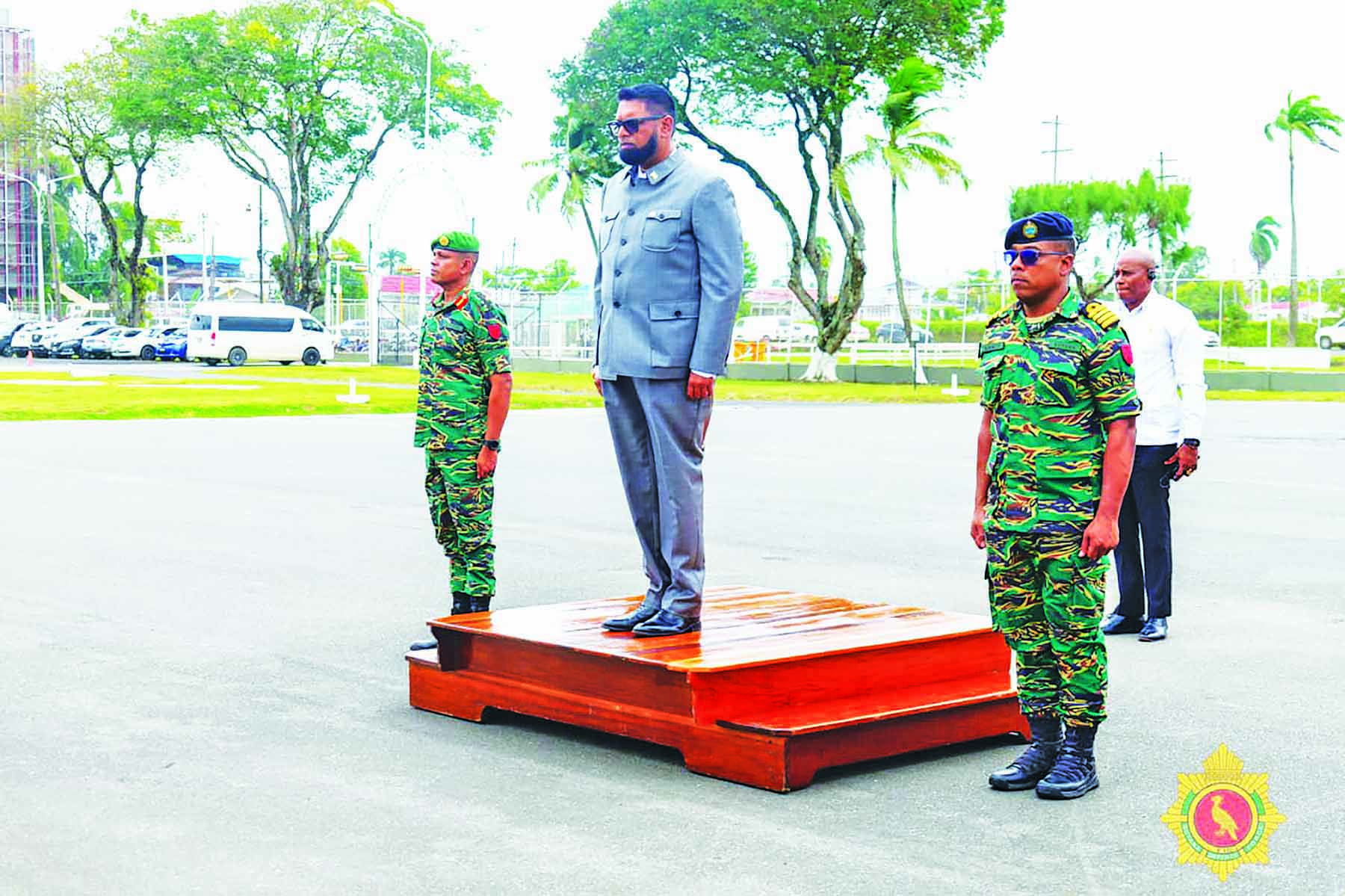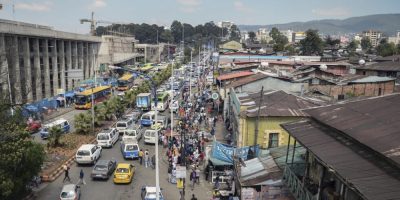…says every soldier must be upskilled for upgraded GDF
It has been revealed that the People’s Progressive Party/Civic (PPP/C) Government has invested more than $115 billion in the Guyana Defence Force (GDF) since 2020, with President Dr Irfaan Ali also stressing the need for all soldiers to become upskilled to complement the improvements being made.
While addressing the army at the GDF’s recent Christmas Luncheon at Base Camp Ayanganna, the Commander-in-Chief of the Armed Force made it clear that the Government is intent on optimising not only the GDF’s infrastructure and equipment, but also human capital development.
“As we build partnerships with many different countries, you’ll be exposed to greater training. Greater opportunity. And importantly, to greater technology that will allow us to optimise our human assets. That will allow us to optimise our human assets, in defence of our country. The Chief of Defence Staff mentioned to you, the increases in the budgetary allocations.”

“In the last four years, we’ve invested more than $115 billion, to ensure that not only you’re prepared and equipped, but to ensure we have the right infrastructure, the right equipment to enable you to be the best you can be, and to ensure our defence architecture and our defence infrastructure is capable, adaptable and flexible, to meet every requirement of the future,” President Ali said.
President Ali also listed some of the areas the Government is looking to improving when it comes to GDF’s functionalities, including in Artificial Intelligence (AI) and cyber security. He also noted the importance of soldier’s pursuing self-development, not only to better contribute to the GDF, but also to prepare themselves for post GDF careers.
“This vision we’re investing in, must be able to train you and prepare our assets and infrastructure, to deal with threats from AI, improve our cyber resilience, improve our intelligence gathering, improve our border security through technology and surveillance, build our human assets and capital and integrate our defence infrastructure and architecture, all around the country,” President Ali said.
“These are essential elements we’re investing in, that will require us to upskill each and every one of you, to improve your competency and make you much more valuable than you are today. The investments we’re making in you, also gives you an opportunity to live a life after the uniform. Because that is important also. How we build your human capacity to live a life after uniform.”
In October, the Government of Guyana had signed a US$16 million contract with American company, Bell Textron Inc. for the supply of two advanced rotary wing aircrafts. In addition to company support for the two helicopters under contract, the United States (US) Embassy, in coordination with US Southern Command, approved funding for a US Air Force team to provide operations, logistics, and maintenance training to the GDF Air Corps to strengthen their ability to sustain the air fleet.
Meanwhile, France has publicly expressed its willingness to expand military cooperation with Guyana in technology and other areas, with a Joint Working Group to soon meet to discuss ways of going about expanding bilateral ties.
And already, dozens of Guyanese officers have benefited from various Police and Military training courses offered by the Indian Government under the Indian Technical and Economic Cooperation (ITEC) Programme.
In addition to training, India has also been assisting the local army to boost its resources. Back in April, as part of a US$23.27 million Line of Credit that the Government of India had extended to Guyana, Hindustan Aeronautics Limited (HAL) delivered two Dornier 228 planes to the GDF. (G3)
Read More Interesting Content


















